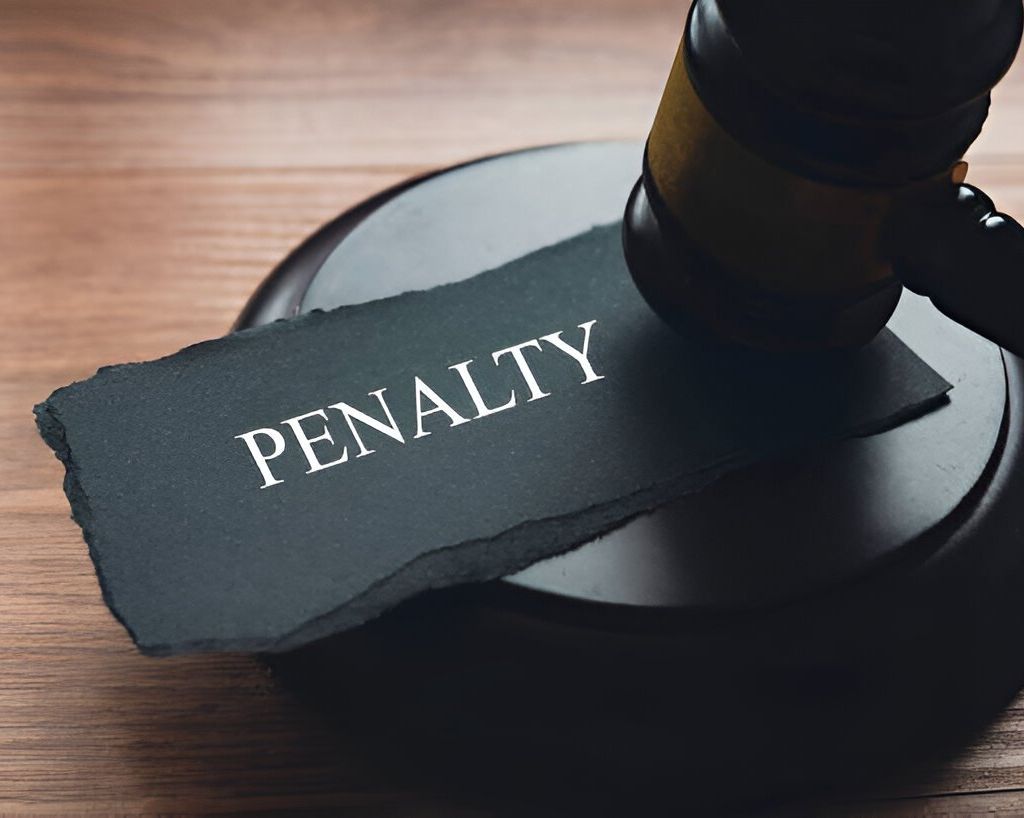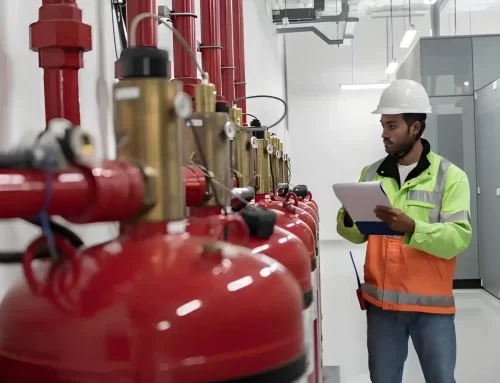
As a homeowner pondering the intricate process of selling a property, the question lingers: Can I sell a House Without a Gas Safety Certificate?
The implications of this certification, or lack thereof, are not to be underestimated. From legal compliance to the safety and well-being of potential occupants, the presence of a gas safety certificate holds significant weight in the realm of property transactions.

Let’s explore the complexities and ramifications of this essential document, shedding light on its impact on both the sale process and the overall security of the property.
Understanding Gas Safety Certificates
Understanding Gas Safety Certificates is crucial for ensuring compliance with legal requirements and safeguarding the safety of occupants in properties with gas appliances. Landlord obligations dictate that gas safety certificates are mandatory for UK properties with gas appliances.
These certificates, also known as landlords gas safety checks, are regulated by the Gas Safety Regulations of 1998, requiring annual checks for all gas appliances to ensure tenant safety. Only registered gas safety engineers, who are members of an HSE-recognized company, can conduct these essential home inspections.
Regular gas appliance maintenance through these certificates is vital to prevent gas leaks, carbon monoxide poisoning, and potential accidents. Landlords must renew gas safety certificates every 12 months to meet legal requirements and protect occupants from harm.
Boiler Installation Certificates Explained
Boiler installation certificates are essential documents that validate the compliance of gas boilers with building regulations and must be issued by registered gas engineers. Compliance requirements necessitate that only certified gas engineers conduct the installation process to ensure adherence to safety precautions and legal implications.
These certificates serve as proof of the boiler’s correct installation and compliance with safety standards, guaranteeing the equipment’s proper functioning. The validity of the certification is crucial, ensuring that the boiler meets all necessary regulations and guidelines.
Homeowners and landlords must prioritize obtaining these certificates to maintain safety standards, legal compliance, and the overall well-being of occupants. Failure to possess a valid installation certificate can lead to significant penalties and risks, impacting the property’s sale process and marketability.
Therefore, understanding and adhering to the requirements for boiler installation certificates is imperative for all individuals involved in property ownership and management.
The Importance of Gas Safety Certificates
Gas safety certificates play a crucial role in ensuring the safety and compliance of properties with gas appliances in the UK. These certificates are of utmost importance as they aren’t only a legal obligation but also serve as safety measures to protect against potential risks.
By obtaining a gas safety certificate, property owners demonstrate compliance with regulations and safeguard the well-being of occupants. Moreover, having a valid certificate can enhance the property value by assuring buyers of the property’s safety standards and adherence to legal obligations.
Regular inspections conducted as part of obtaining a gas safety certificate help in preventing gas leaks, explosions, fires, and carbon monoxide poisoning. Therefore, prioritizing the acquisition of a gas safety certificate is essential for maintaining a secure environment within the property and complying with the necessary legal requirements to ensure the safety and well-being of all individuals involved.
Penalties and Risks Without Certificates
Facing the consequences of selling a house without a gas safety certificate entails potential legal penalties, insurance invalidation, and the risk of compensation claims. Legal consequences for non-compliance may result in fines, imprisonment, or manslaughter charges in case of accidents.

Safety hazards are increased for new occupants due to the absence of a gas safety certificate, which ensures the safe operation of gas appliances. Insurance implications include the invalidation of property insurance, leaving owners vulnerable to financial risks.
Selling difficulties may arise as buyers often request a gas safety certificate post-sale, causing delays and impacting the property’s marketability. Therefore, the absence of a gas safety certificate not only poses safety risks but also affects the legal standing, insurance coverage, and overall market appeal of the property.
It’s paramount to address these issues proactively to safeguard against potential liabilities and ensure a smooth property transaction.
Impact on Property Sale
When considering the impact of selling a house without a gas safety certificate, it’s crucial to understand the potential ramifications of the property sale process.
The absence of a gas safety certificate can significantly affect the property valuation, as buyers may perceive the lack of certification as a safety concern, leading them to negotiate a lower price.
Moreover, the legal implications of not having a gas safety certificate can cause delays during the conveyancing process and potentially impact the marketability of the property.
Buyers may also express hesitance or request the certificate post-sale, adding complexity to the transaction.
Ensuring the property has a gas safety certificate isn’t only a legal requirement but also a crucial factor in maintaining buyer confidence, safeguarding against safety hazards for new occupants, and preserving the property’s market value.
Obtaining a Gas Safety Certificate
To ensure compliance with legal requirements and maintain safety standards, obtaining a gas safety certificate is imperative for property owners with gas appliances in the UK.

As a homeowner or landlord, it’s crucial to understand the legal obligations surrounding gas safety. The Gas Safety Regulations of 1998 mandate annual gas appliance checks to protect occupants from potential hazards. Landlords hold a significant responsibility in ensuring the safety of their tenants by renewing gas safety certificates every 12 months.
These certificates not only fulfill legal requirements but also play a vital role in safeguarding against gas leaks, carbon monoxide poisoning, and other gas-related dangers. Engaging a Gas Safe registered engineer to conduct thorough gas appliance checks is essential to obtain a valid certificate.
Frequently Asked Questions
Can a Homeowner Conduct Their Gas Safety Checks Without Hiring a Registered Gas Safety Engineer?
As a homeowner, conducting DIY gas safety checks is risky and legally questionable. Professional inspections by registered engineers are crucial. Sellers have the responsibility to ensure safety, adhere to regulations, and mitigate legal liabilities.
Are There Any Exemptions for Properties That Are Not Required to Have a Gas Safety Certificate When Selling?
When considering exemptions for properties not mandating gas safety certificates for sale, it’s crucial to understand the regulations and legal implications. Property safety requirements vary based on specific circumstances, impacting the certification process and selling obligations.
What Should a Buyer Do if They Discover That a Property They Purchased Does Not Have a Valid Gas Safety Certificate?
Discovering a property lacks a valid gas safety certificate post-purchase gives the buyer rights to legal recourse. Safety precautions are vital. Request an inspection, negotiate remedies, seek compensation for risks, and ensure future compliance.
Is It Possible to Obtain a Gas Safety Certificate Retroactively After a Property Has Been Sold?
Obtaining a retroactive gas safety certificate post-sale is feasible but complex. Compliance with safety regulations and legal implications are crucial. Property inspections, liability concerns, and potential penalties must be addressed. Retroactive certification involves thorough processes and expert guidance.
How Can Landlords Ensure That Their Tenants Are Aware of the Gas Safety Certificate Requirements When Renting Out a Property?
Ensuring tenant safety involves educating them on gas safety, highlighting landlord duties, and compliance standards. Regular property inspections, maintenance tips for gas appliances, and clarity on legal requirements in rental agreements are crucial for upholding safety regulations.
Conclusion
In conclusion, it’s imperative to have a gas safety certificate when selling a house to ensure legal compliance, protect the well-being of occupants, and avoid potential penalties and risks.
Without this certification, the property sale process may be hindered, and the value of the property could be impacted.
By obtaining a gas safety certificate, homeowners can navigate the sale of their property smoothly while prioritizing safety and adhering to regulations.
About the Author: LandlordCertificate
Related Posts
Get Social
Recent Posts
- Gas Safety Certificate for New Tenancies: Timing and Tenant Handover Tips
- Why Every London Landlord Should Have a Valid Portable Appliance Testing Certificate
- Professional Fire Alarm Installation London: What You Need to Know Before Booking
- How to Obtain a Fire Risk Assessment Certificate for Your Buildings
- EICR Safety Inspection: The Ultimate Checklist for Electrical Compliance













